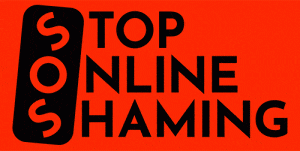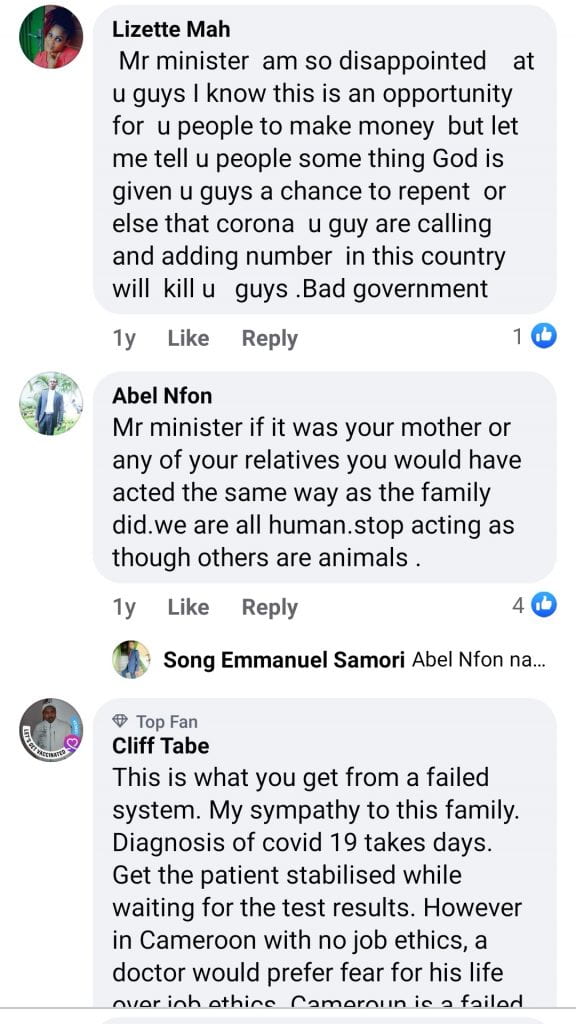
On the 27th of October 2021, I attended a thrilling class on zoom with Luna Dolezal who shared her studies work on “healthcare workers, online shaming during covid 19 in the United Kingdom (UK) the first wave of the pandemic”. Her initiatives empowered me and broadened my knowledge of how to take a bold step in studying and evaluating research, especially with current issues. I realized that her work was similar to my observations in Cameroon.

Professor Luna’s work which is a corporation with Arthur Rose and Fred Copper sponsored by “Wellcome trust” examines how shame and stigma arose out of public intervention in covid 19 by 2020 in the UK first wave of the pandemic. In her presentation, Luna recollects distinctive war metaphors used on social media structures all geared to medics. Dolezal (2020) states shame started decades ago, what makes covid distinct from other pandemics is that ” the scene of shame has modified dramatically with the internet”(Mann 2018). She started, shame and stigma directed to the health care workers are associated with the worry of infection and anxiety that medics are spreaders of the disease so should be restricted in the medical spaces. In the UK like elsewhere, health care professionals in the frontline of covid have further been victims of stigmatization and shaming sometimes leading to violence abuse ( Dolezal, 2021)

The nurses have become homeless due to being shunned, attacked, and accused by their worried landlords and have confronted abusive and vulgar remarks. Several instances of harassment, attacks, and fake accusations of spreading the virus have also surfaced towards them. This has left them experiencing dismay, humiliation, and hurt, inflicting them to depart their homes. (Bhanot et al, 2020). Flusberg, Matlock, & Thibodeau’s (2020) research also stated war metaphors are intimately tied to the context in which they are used, which may bring about both tremendous or terrible outcomes, relying on the scenario. For example, (Ferguson,2020, Dolezal, 2021) said the hateful remark about Dr. Rokita managing Covid 19 induced him to commit suicide.

This reminds me of a comparable scenario in Cameroon of how online shame was manifested in early May and July 2020 especially on Facebook and WhatsApp where a doctor experienced verbal abuse, physical assault, eviction, and social ostracization.

. At that time, I did not understand the effect of such feedback on healthcare workers but later on, after a press conference held by the Cameroon Minister of Public health who advised people about the repercussions of shaming doctors, I felt awful and wished I had done something to prevent it. Having learned this, I now think that I would have managed the act by teaching the public on social media platforms about the ills of hate speech and its negative impact on society. Furthermore, I have discovered that promoting peace in moments of disaster is crucial. However, I have not sufficiently developed my skills in peace journalism. Equally, I suppose that online shaming and abuse is a collective response to convert crisis in the UK, channeling fear and uncertainties.
Reference
Bhanot D., Singh T., Sharad A., Sunil K., V, 2020. Stigma and discrimination during Covid 19. Published by Frontiers in Public Health. https://www.frontiersin.org/articles/10.3389/fpubh.2020.577018/full (Accessed: 20 January 2022).
Dolezal, L. 2021. Healthcare workers & online shaming during covid-19. Media communication & covid-19. Being a speaker’s series in contemporary perspectives in media and communication 2. Bournemouth University. (Accessed: 20 January 2022).
Dolezal, L., Arthur R., and Cooper F., 2021. ‘Covid-19, online shaming and health care professionals. The Lancet Journal, |398 (10299), pp482-483. doi: https:doi.org/10.1016/S0140-6736(21)01706-2 (Accessed: 20 January 2022).
Flusberg, S.J., Matlock, T., & Thibodeau, P.H. 2018. War metaphors in public discourse. Metaphor & Symbol, 33, 1-18. https://philpapers.org/rec/FLUWMI (Accessed: January 20, 2022)
Mann J., J., and Malhi G., A., 2018. Depression. The Lancet, Seminar. Volume 392, issue 10161, P 2200-2312.https://www.thelancet.com/article/S0140-6736%2818%2931948-2/fulltext (Accessed: January 20, 2022)
Margot Harris, 2020. Coronavirus fears have inspired shaming and death threats online. This is how public concern turns into harassment,( image).INSIDER. ( accessed 24, January 2020). https://www.google.com/amp/s/www.insider.com/coronavirus-shaming-viral-callout-online-pandemic-behavior-covid-2020-4%3famp
Stoponlinesshaming.org, 2022. Stichting Stop Online Shaming. (image) accessed 24 January 2022). https://www.stoponlineshaming.org/en/
Serani Psy D., D, 2019. Medical Shaming and Mental Illness, Tips for taking control, psychology today. ( Access 24 January 2022) https://www.google.com/amp/s/www.psychologytoday.com/gb/blog/two-takes-depression/201905/medical-shaming-and-mental-illness%3famp
Mini Mefo Info,2020. Health Minister says attack on health worker in Douala following demise of patient is inadmissible. Mini Mefo Info May 3, 2020.
